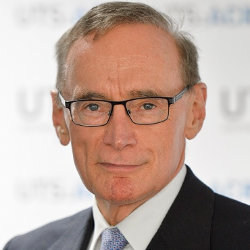The one hope for peace in the West Bank
February 24, 2023
Last Thursday, the Australian government condemned Israel for planting more settlements on the occupied West Bank: 10,000 extra units. Its a big step to criticise Israel because in Australia its organised friends are a powerful lobby. But this was a huge breach of international law. And, as Penny Wong pointed out, a deliberate blow to a two-state solution.
The West Bank was taken by Israel in the 1967 Israel-Arab war. To this day, Israel maintains its control through a big military presence, a network of walls and checkpoints, fierce laws that discriminate against Palestinians. It has also unleashed Israeli settlers whose numbers have grown to 600,000, attempting to smother the prospect of a Palestinian state under massive housing blocks for Jews and on the best land.
Yet a Palestinian state, alongside Israel with secure borders for both, is the one hope for peace. Thats what Penny Wong and most of the worlds governments call the two-state solution.
Years ago, like most social democrats, I was fond of Israel. It could boast freedom of speech and a strong judicial system. It was easy to paint it as the only democracy in a region of Arab dictatorships. The symbol of Israel was the kibbutz co-operative farms, social production in action. Most of my generation had never met a Palestinian or understood how brutally they had been displaced when Israel was founded in 1948.
Today, its not a matter what you think of Israel. Its a matter what you think of the Israeli occupation. An occupation against the will of a majority Arab population and enforced with a big dose of cruelty that sees, for example, 12-year-old Palestinians flung into military prisons and tried before military courts.
Since 2000, more than 2000 Palestinian children have been killed. Measured by indifference to the shooting of children, how is this administration different from Myanmars or Irans?
When I address a meeting of Tasmanian Friends of Palestine on Saturday, I will say that Israel under its new extreme-right government is openly embracing Apartheid policies that it has practised for years. In 2018, it had even enacted a new law, the Jewish Nation State Law, which enshrined Jewish supremacy over Palestinian citizens, or two categories of citizenship based on race.
By definition, thats Apartheid.
In addition, an Israeli civil rights organisation called Adalah lists more than 50 laws that discriminate against Palestinian citizens of Israel.
On the occupied West Bank, Apartheid is rampant. More than 50,000 Palestinian houses have been demolished and a million olive trees destroyed. Israeli settlers get 300 litres of water per day, Palestinians 73 litres. Israeli human rights advocates condemn the daily humiliation inflicted upon Palestinians through hundreds of check points forcing them to queue sometimes for hours when theyre desperate to go home, to work, to a maternity hospital.
A leader of the Jewish community in the US, Hadar Susskind, has called for the US to stop Israeli settlement activity, branding the Israeli government one of extremists and provocateurs. Senator Bernie Sanders, also Jewish, called this week for the US to cut aid to Israel to send a message. You cannot run a racist government. You cannot turn your back on a two-state solution. You cannot demean the Palestinian people and then come to America and ask for money, he said.
In this spirit, the Australian Labor Party for five years has cleaved to a policy of recognising Palestine. Despite ferocious lobbying to have the policy dropped, the national conference has elevated it to the partys platform.
This commitment is now more crucial than ever.
One, it sends a message to the Palestinians that there is a peaceful road to their own state. Its an alternative to violence. Two, it sends a message to the extremists who have taken over Israel that if they continue to breach international law by settling Israeli citizens on occupied land, they will lose the support of the West. After all, 138 nations, including the Vatican, already recognise Palestine.
Think about our country as a creative middle-power with a foreign policy based on support for international law and decency. Even if the problems a long way away, we can send a message that we care. Thats what being a good global citizen means.
Friends of Palestine Tasmania are inviting you to join them for an online conversation with former Foreign Minister, Professor the Hon Bob Carr**.**
Register today, and join FoPT on Saturday, the 25th of February to hear Bob’s analysis of the current political situation, and how Australia can lead.
Bob has been an outspoken critic of the Israeli Government’s policies against Palestinians for years, and has intimate political knowledge on the topic.
In his address, Bob will begin by saying its not what you think of Israel, its what you think of Israels occupation. And the cruelty of the occupation, and the remorseless spread of settlements now energised by Israels right wing and racist government all of which represent egregious breaches of international law. That Israel practices Apartheid in the West Bank can no longer be a matter of dispute. What can the democratic world do as Israel defines itself by settlements, annexation and Apartheid? Bob Carrs answer is: recognise Palestine. Australia can lead.
Bob Carr is the longest serving premier of NSW and former foreign minister.
First published in The Hobart Mercury, February 23, 2023

